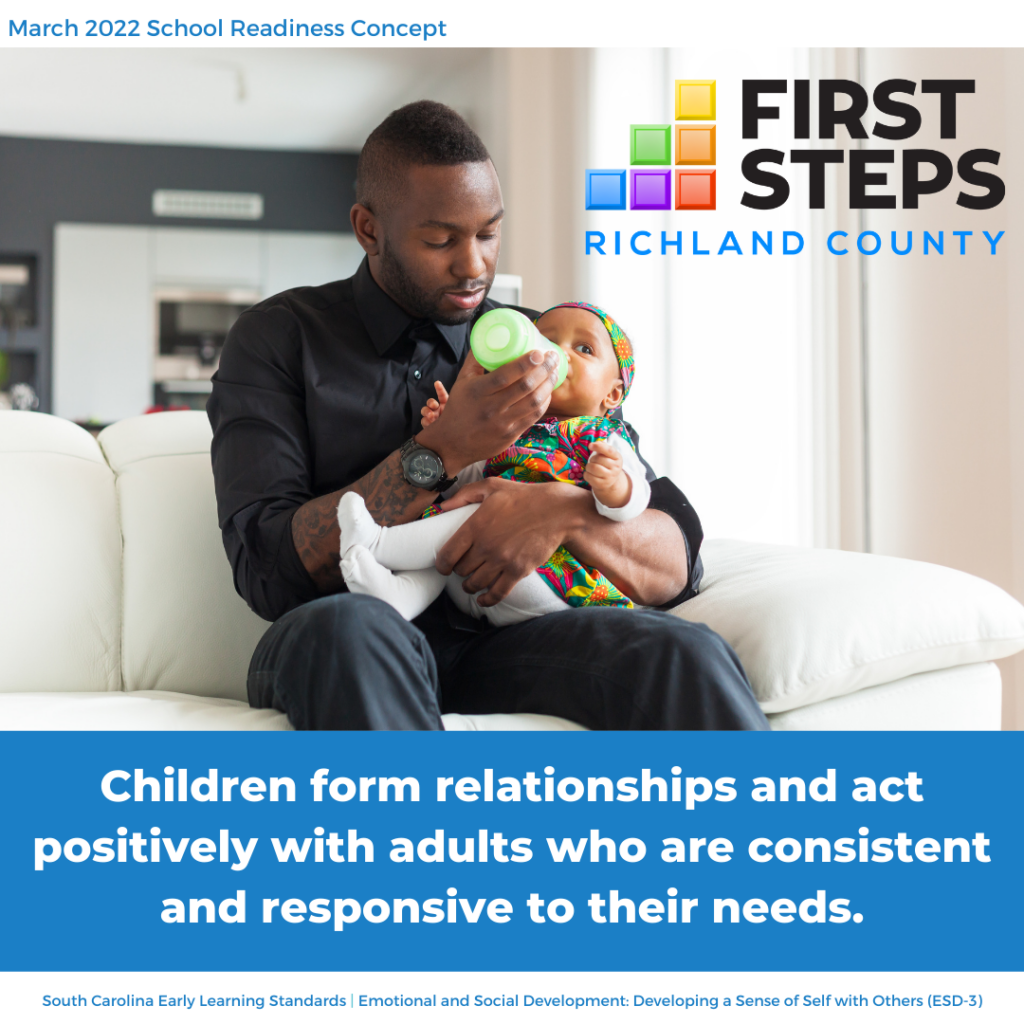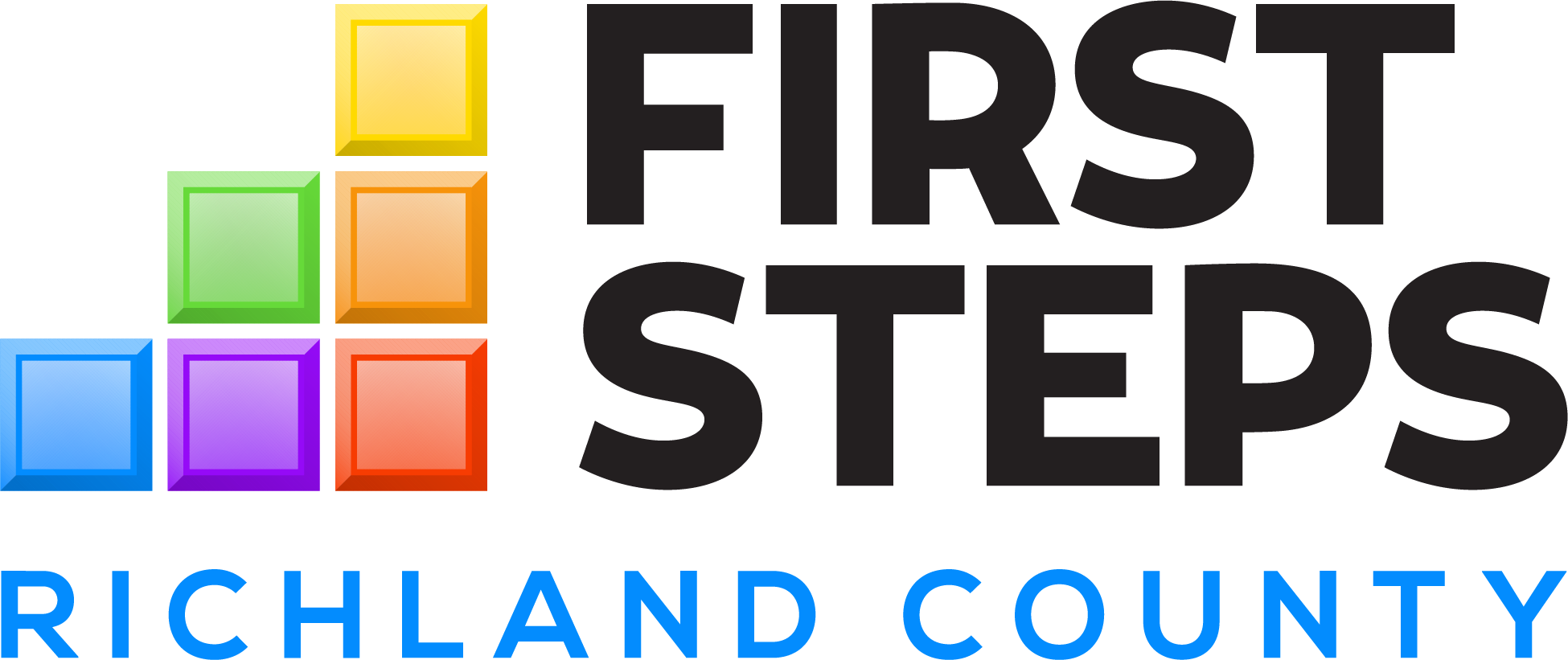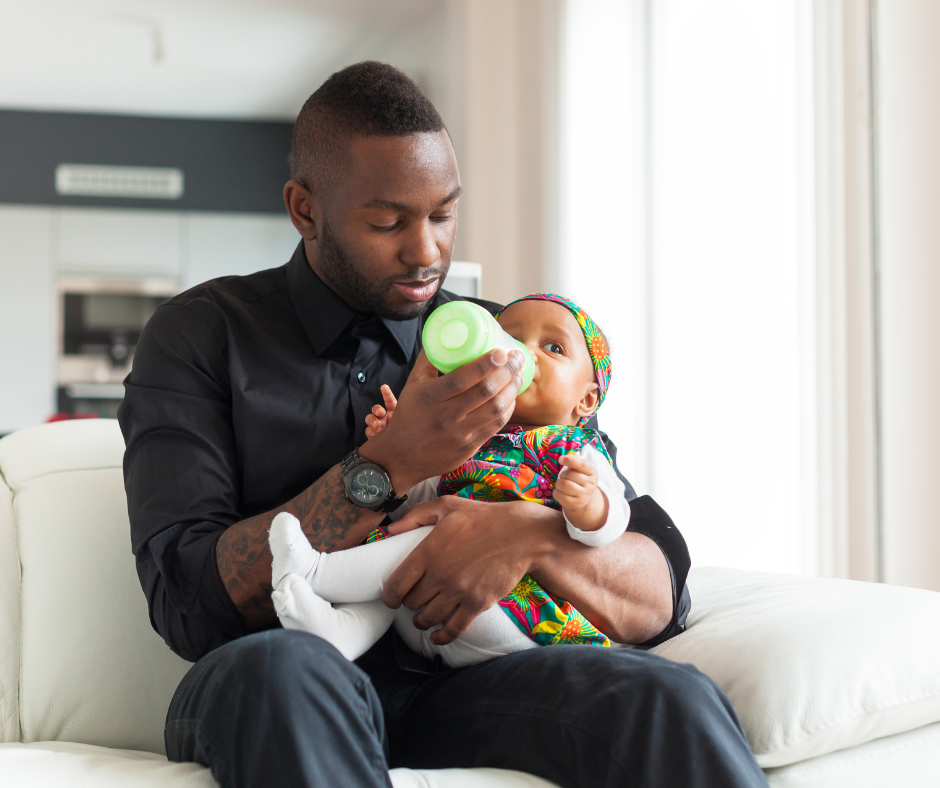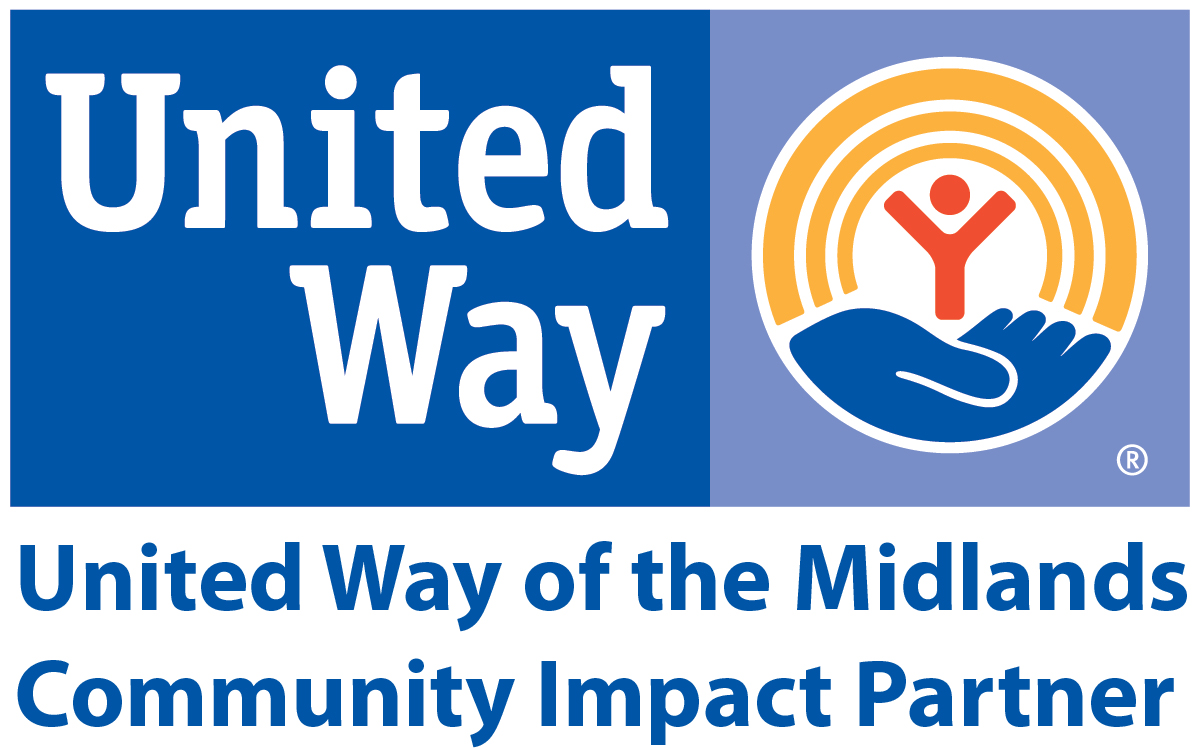
Each month, Richland First Steps selects one school readiness goal from the SC Early Learning Standards (SCELS) to spotlight throughout our programs for children, families, and child care providers.
This month’s concept comes from the Emotional and Social Development domain of the SCELS. Like all of the standards, there are developmental indicators that show a child’s progress on this goal at each stage:
Infants (Birth to 12 months)
- Enjoy being held, cuddled, and talked to by familiar adults.
- Recognize and reach out to familiar people.
- Seek to be near their caregivers; stop crying when they come near.
- Show signs of separation anxiety when a familiar caregiver leaves.
- Make eye contact with others.
- Imitate sounds, facial expressions, or gestures they see other people do (peek-a-boo, hands up for “so big”).
Younger Toddlers (8 to 21 months)
- Show preference for and emotional connection with adults who take care of them on a regular basis (“check in” with caregiver while playing, greet family member with big hug, seek out caregiver when upset or uncertain, exhibit anxiety when adult leaves).
- Offer toys and objects to familiar adults.
- Look to adult for affirmation of behavior/guidance.
Older Toddlers (18 to 36 months)
- Seek out trusted teachers and caregivers as needed (for emotional support, physical assistance, social interaction, problem solving and approval).
- Form close relationships with their primary caregivers and other familiar adults.
- Seek help from trusted adults when upset (when fearful or having difficulty with something).
- Are less likely to get upset when primary caregiver is with them.
- Use words to influence caregivers’ behavior (ask for help, talk about something they want the adult to do).
Younger Preschoolers (36 to 48 months)
- Seek out trusted teachers and caregivers as needed (for emotional support, physical assistance, social interaction, problem solving and approval).
- Show affection for adults they are close to.
- Given time, form positive relationships with new teachers or caregivers.
- Show ease and comfort in their interactions with familiar adults.
- Ask for assistance from adults.
Older Preschoolers (48 to 60+ months)
- Seek out trusted teachers and caregivers as needed (for emotional support, physical assistance, social interaction, problem solving and approval).
- Form positive relationships with new teachers or caregivers over time.
- Use language effectively to continue conversations with familiar adults and to influence their behavior (ask for help, ask an adult to do something).


